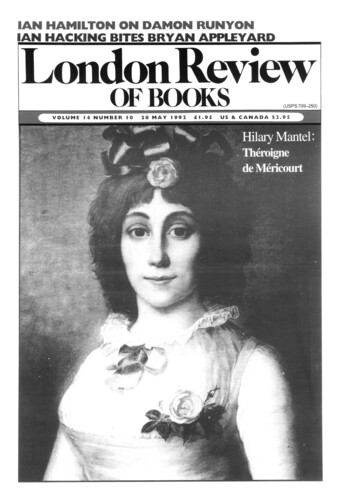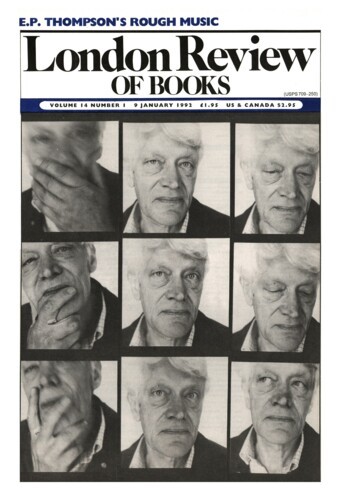Where mine is at
Gordon Burn, 28 May 1992
When Robert Stone’s best-known novel, Dog Soldiers, was published in 1974, there was a small but significant overlap of material with The Electric Kool-Aid Acid Test, Tom Wolfe’s souped-up, superheated journalistic account of the beginnings of the counterculture, published six years earlier. The coincidence of material was in many ways inevitable. Stone had been part of the California bohemian underground grouped around the ‘drug apostle’, Ken Kesey, and his acid-snaffling followers, the Merry Pranksters; and Stone both figures in the narrative of Acid Test and is acknowledged by Wolfe in his Author’s Note: ‘There were several excellent writers, in addition to Kesey, who were involved in the Prankster saga … Robert Stone told me a great deal about Kesey’s fugitive days in Mexico.’


